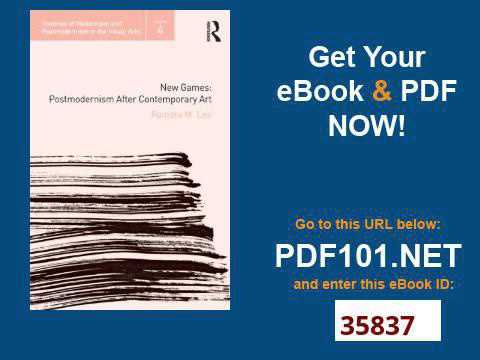This is an audio version of the Wikipedia Article:
Index of analytic philosophy articles
Listening is a more natural way of learning, when compared to reading. Written language only began at around 3200 BC, but spoken language has existed long ago.
Learning by listening is a great way to:
– increases imagination and understanding
– improves your listening skills
– improves your own spoken accent
– learn while on the move
– reduce eye strain
Now learn the vast amount of general knowledge available on Wikipedia through audio (audio article). You could even learn subconsciously by playing the audio while you are sleeping! If you are planning to listen a lot, you could try using a bone conduction headphone, or a standard speaker instead of an earphone.
You can find other Wikipedia audio articles too at:
https://www.youtube.com/channel/UCuKfABj2eGyjH3ntPxp4YeQ
You can upload your own Wikipedia articles through:
https://github.com/nodef/wikipedia-tts
“The only true wisdom is in knowing you know nothing.”
– Socrates
SUMMARY
=======
This is a list of articles in analytic philosophy.
A. C. Grayling
A.P. Martinich
Abstract particulars
Actualism
Alfred Jules Ayer
Analysis
Analytic-synthetic distinction
Analytic philosophy
Analytic reasoning
Arda Denkel
Arthur Danto
Australian Realism
Avrum Stroll
Begriffsschrift
Berlin Circle
Bernard Williams
Bertrand Russell
Brainstorms
Breaking the Spell: Religion as a Natural Phenomenon
C. D. Broad
Cahiers pour l’Analyse
Carl Gustav Hempel
Ramsey sentence
Charles Sanders Peirce
Chinese room
Cognitive synonymy
Contemporary Pragmatism
Contrast theory of meaning
Cooperative principle
Cora Diamond
Daniel Dennett
Darwin’s Dangerous Idea
David Braine (philosopher)
David Kellogg Lewis
Depiction
Descriptivist theory of names
Dialectica
Direct reference theory
Doctrine of internal relations
Donald Davidson (philosopher)
Doxastic logic
Elbow Room (book)
Elliott Sober
Erkenntnis
Ernst Mach
Eternal statement
F. C. S. Schiller
Family resemblance
Felicity conditions
Form of life (philosophy)
Frank P. Ramsey
Freedom Evolves
Friedrich Waismann
G. E. M. Anscombe
George Edward Moore
Gilbert Ryle
Gottlob Frege
Gricean maxims
Gustav Bergmann
Hans Hahn
Hans Reichenbach
Hans Sluga
Harvey Brown (philosopher)
Herbert Feigl
Holism
Hypothetico-deductive model
Indeterminacy of translation
Introduction to Mathematical Philosophy
Isaiah Berlin
J. L. Austin
Jeff Malpas
Jerry Fodor
John Hick
John Rawls
John Searle
John Wisdom
Jules Vuillemin
Karl Menger
Kit Fine
Kurt Grelling
Kwasi Wiredu
Language, Truth, and Logic
Logical atomism
Logical form
Logical positivism
Lorenzo Peña
Ludwig Wittgenstein
Mark Addis
Mark Sacks
Max Black
Mental representation
Metaphor in philosophy
Michael Dummett
Michael Tye (philosopher)
Modal realism
Moritz Schlick
Naming and Necessity
Nelson Goodman
Neurophilosophy
Nonsense
Norman Malcolm
Oets Kolk Bouwsma
Olaf Helmer
Olga Hahn-Neurath
On Certainty
On Denoting
Ordinary language philosophy
Original proof of Gödel’s completeness theorem
Ostensive definition
Otto Neurath
P. F. Strawson
Paradox of analysis
Paul Churchland
Paul Grice
Per Martin-Löf
Peter Hacker
Peter Simons
Philipp Frank
Philippa Foot
Philosophical analysis
Philosophical Investigations
Philosophy of engineering
Philosophy of technology
Pieranna Garavaso
Postanalytic philosophy
Preintuitionism
Principia Ethica
Principia Mathematica
Private language argument
Process philosophy
Radical translation
Richard von Mises
Robert Audi
Rose Rand
Round square copula
Rudolf Carnap
Rupert Read
Ryle’s regress
Speech act
Stephen Laurence
Susan Stebbing
The Bounds of Sense
The Logic of Scientific Discovery
The Mind’s I
Theodore Drange
Þorsteinn Gylfason
Tore Nordenstam
Tractatus Logico-Philosophicus
Two Dogmas of Empiricism
UCLA Department of Philosophy
Use–mention distinction
Verification theory
Verificationism
Victor Kraft
Vienna Circle
Wilfrid Sellars
Willard Van Orman Quine
William James Lectures
William L. Rowe
William W. Tait
Wolfgang Stegmüller
Word and Object
Zeno Vendler
wikipedia tts
Source



